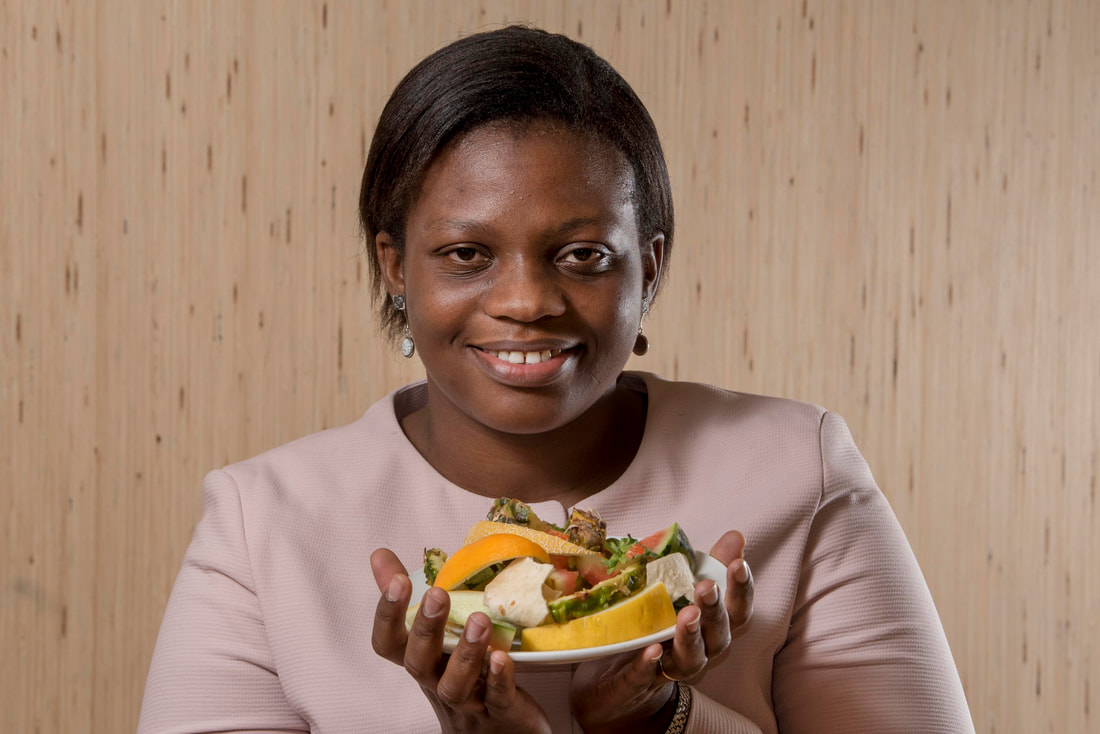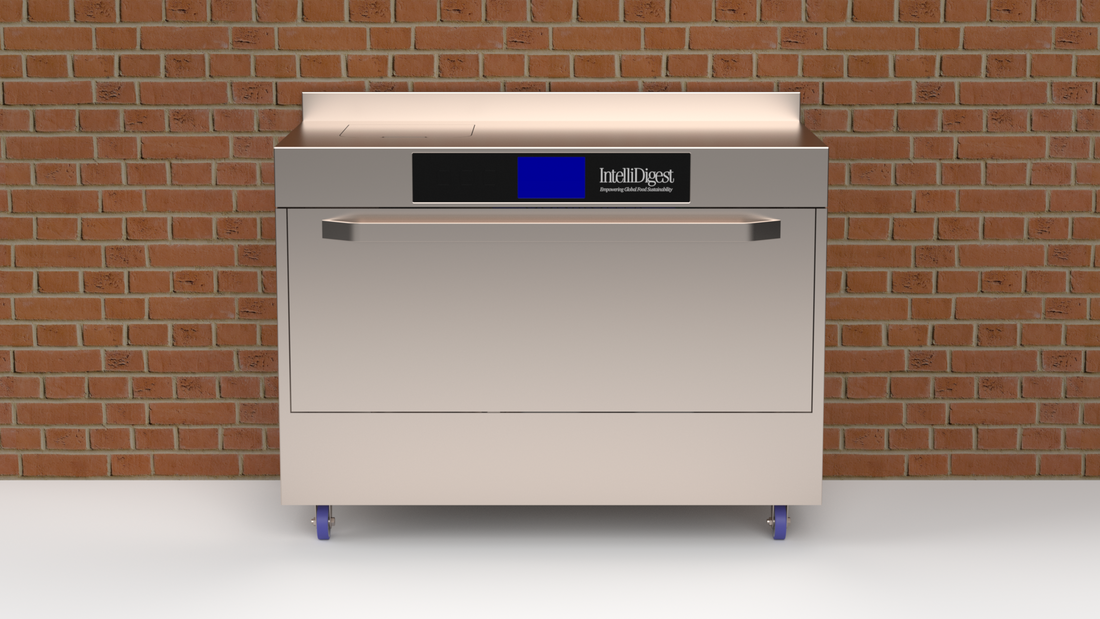|
Reduced food miles, fewer greenhouse gas emissions, less pollution and more resilient supply chains –recovering nutrients in inedible food waste brings multiple benefits, as this SFN-supported project shows. Despite producing more food than ever, around a tenth of the global population (811 million people) were undernourished in 2020 (UN Food and Agricultural Organization, FAO). What’s more, intense agricultural methods contribute significantly to climate change, generate unsustainable levels of pollution, degrade soils, and have led to diets dominated by nutrient-poor convenience foods. On top of these chronic issues, the COVID-19 pandemic has caused major disruptions to the ‘just in time’ food supply model. Consequently, many are now questioning whether we can develop local food networks that are more resilient and sustainable. But with most people now living in urban environments – many miles from farmers and producers – how can we shorten food supply chains on a meaningful scale? The solution may come from adopting Circular Economy principles, where ‘waste’ products are treated as valuable resources and recycled within a closed system. Circular Economy principles can be applied to all kinds of things – from vehicles to packaging – but in terms of food, this means recapturing nutrients from food waste and putting them to work in growing the next generation of crops. This is the ambition of IntelliDigest, a company which aims to support the birth of global circular food systems, which are resilient, robust and capable of feeding the growing global population. “As we build back better from the COVID-19 pandemic, evolving a more sustainable food system is an imperative”, says Dr Ifeyinwa Kanu, CEO and Founder of IntelliDigest. “I love nature and am passionate about engineering solutions to address global challenges, particularly food system sustainability.” Through an SFN 2020 Scoping Project Grant, IntelliDigest was able to work with experts at STFC to advance two projects carrying out the fundamental research needed to support this transition: Turning food waste into crop fertiliser Before food waste can be used in agriculture, the nutrients within must first be converted into a form plants can absorb. Ifeyinwa is leading her team at IntelliDigest to address this using iDigest: an automated bioreactor which uses enzymes from bacteria and plants to turn inedible food waste into a broth-like liquid. The output from iDigest can then be processed into a more sustainable alternative to conventional mineral-based fertilisers (which are by-products of oil and gas processing). In addition, certain recovered biochemicals could be used to produce biodegradable packaging and solar cells, therefore improving the overall food system sustainability. The iDigest bioreactor will have to be capable of handling the enormous variety of food waste that originates from farms, households, restaurants and the catering sector. This will require real-time information on food waste composition, so that the combination of enzymes can be optimised for maximum nutrient recovery. To solve this, Ifeyinwa collaborated with researchers based at the STFC’s Central Laser Facility, at Harwell Campus, Oxfordshire: Dave Clarke, Sarah Rogers and Claire Pizzey. So far, they have explored a range of spectroscopic techniques (including near- and mid-infrared, and Raman Spectroscopy) that may be suitable for developing into a photonic sensor. “We are now building on this work through collaborations with the National Physical Laboratory (NPL) and Strathclyde University, exploring how applying algorithms to the data could give us improved insight on the material characterisation” says Ifeyinwa. The next step will be to develop a simple sensor that can carry out real-time compositional analysis as the iDigest process breaks down complex food waste. As part of the SFN-supported project, Ifeyinwa joined forces with Dr Harry Langford at Crop Health & Protection (CHAP) to run a pilot study on the iDigest broth. The nutrient solution was tested on little gem lettuce, grown either in soil or using hydroponics (where plants are grown without soil, their roots suspended directly in nutrient-rich liquid). Although further work is needed to improve the use of the iDigest nutrient broth in hydroponics, applying it directly to soil resulted in excellent growth and improved nutrient content, compared with using standard commercial nutrient. Potentially, coupling the photonic sensor to algorithms could allow tailored ‘nutrient recipes’ to be produced, optimised to the specific needs of different crops and production systems.
Validating the feasibility of circular farming for urban regions For iDigest to scale up, it will require food waste to be sourced from multiple different locations. Consequently, IntelliDigest is researching a central system for mapping different food waste sources, and ensuring these achieve an overall balanced nutrient composition. In partnership with Dr Jens Jenson, a data mining and machine learning expert at STFC Hartree, Ifeyinwa has developed a pilot interface using the STFC DAFNI platform. Through high-performance parallel computing methods, this presents a logistical and economic model that tracks all food waste sources over a given area. The pilot model was based on synthetic data generated for different potential food waste sources (including restaurants, hotels, schools and households) over a defined region. The resulting model tracks and displays a range of variables, including volume of food waste, frequency of food waste collection, and cost comparisons between recycling the food waste conventionally and the iDigest method. In time, information on nutrient content will be added by linking the food waste source with data from the iDigest photonic sensors. Meanwhile, the platform has sparked a spin-out idea to help ordinary members of the public to reduce their food waste footprint. The Global Food Loss & Waste Tracker (www.WorldFoodTracker.com) is an online platform that allows users to track the volume of their food waste, besides the monetary value and associated greenhouse gas emissions. The platform was officially launched on 18 June (Sustainable Gastronomy Day) 2021 and can be freely downloaded via GooglePlay. “My work with IntelliDigest is exciting because it has the potential to deliver so many of the aims to fix our broken food systems: reduced waste, increased resilience, local food production, more nutritious food, and net-zero agriculture. I am very grateful for all of the support from the SFN and my STFC colleagues” Ifeyinwa concludes. People involved: Food-side CoIs: 1. Dr Devendra Saroj, University of Surrey 2. Dr Elisa Lopez-Capel, Newcastle University 3. Dr Harry Langford, Crop Health & Protection 4. Dr Lydia MJ Smith, Innovation Farm and EA Innovation Hub, 5. Dr Ruben Sakrabani, Cranfield University STFC-side CoIs: 1. Dr Jens Jenson- Data mining and Machine learning (STFC Hartree/DAFNI) 2. Dr Dave Clarke, Dr Sarah Rogers and Dr Claire Pizzey – Infrared sensors (STFC Laser Centre)
2 Comments
28/11/2023 02:31:50 am
Looking ahead, what are the future prospects and potential advancements for Intellidigest in the field of sustainable waste management?
Reply
Your comment will be posted after it is approved.
Leave a Reply. |
AuthorJune 2024 - Archives
June 2024
Categories |
- Home
- Webinars and Events
- About the SFN+
- News
- Blog
- Expert Working Groups
- Funding
-
Publications
- Bioeconomy positioning paper
- SFN+ 5th Annual Conference
- OMM Policy Report
- ‘Multi-Stakeholder International One Day Workshop on Organic Agri-Food Value Chains for Net Zero’ Report
- SFN 2050 UK Net Zero Food report
- Sustainable Cold Food Chain Booklet
- Food Sensing Technologies for Safe and Nutritious Food
- Sustainable urban and vertical farming
- Projects
- Join/Contact Us



 RSS Feed
RSS Feed


